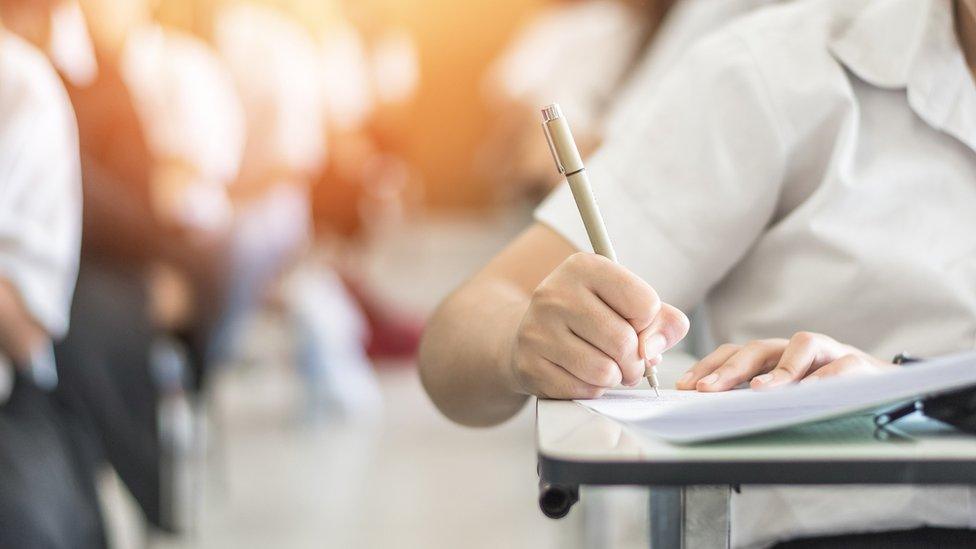Covid-19: School meals and transport on hold until February
- Published
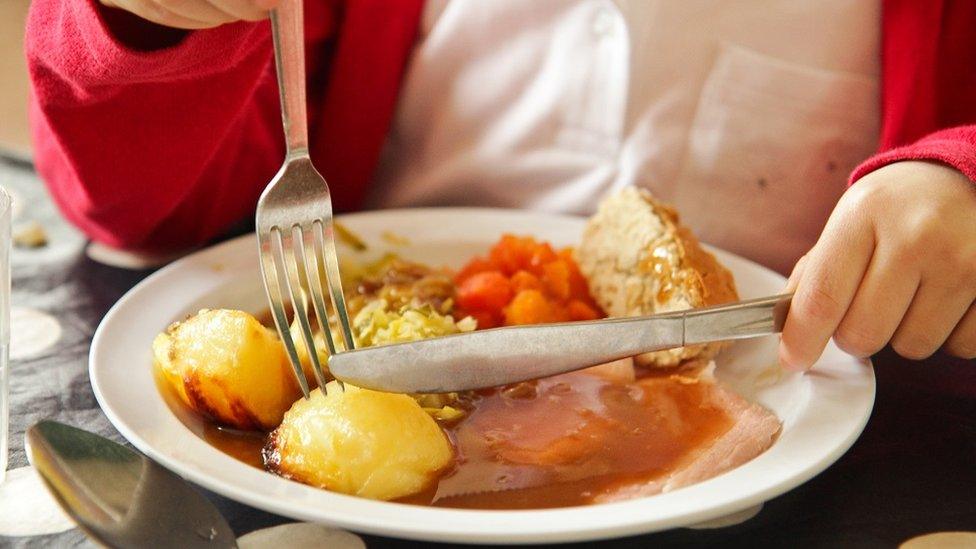
There will be no school meals for vulnerable children or children of key workers attending many schools in Northern Ireland until mid-February.
There will also be no transport for pupils to mainstream schools unless they request it.
That is according to guidance issued by the Education Authority (EA) on Friday.
The Department of Education (DE) also confirmed that the executive has been asked to prioritise school staff for vaccination.
Only vulnerable pupils and the children of key workers are able to attend nursery, primary and post-primary schools until the February mid-term break.
Special schools remain open to all pupils, and meals and transport for them will continue.
The DE has said it is now a legal requirement for schools to provide remote learning to all pupils.
But many schools expect that a significant minority of pupils will be eligible to attend in person.
In England, some heads are calling for limits to the number of pupils in school during lockdown, with attendance rates surging to 50% in some places.
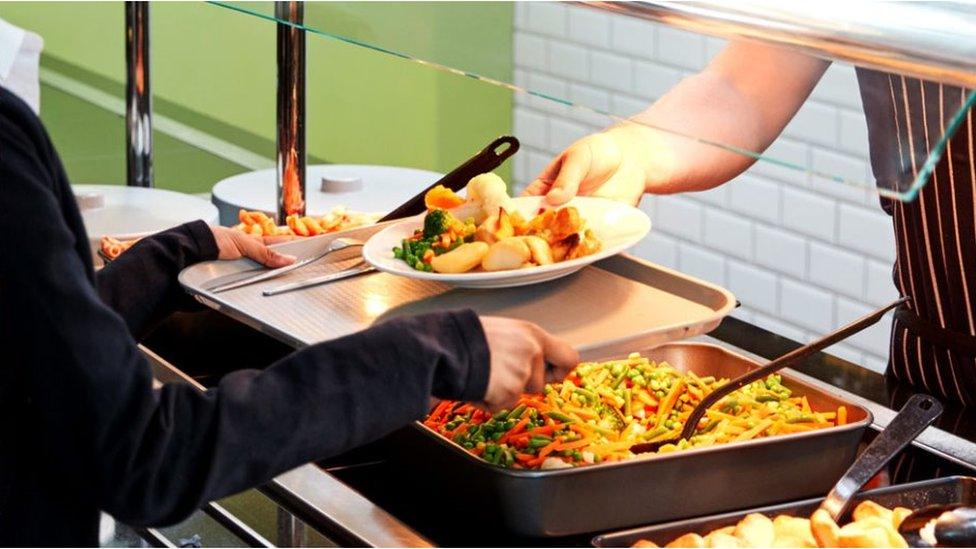
But on Friday the EA told schools in Northern Ireland that meals would not be provided for pupils who attend.
Instead they must bring a packed lunch, though schools have been told that they can put catering staff "on call" if a pupil turns up without one.
Menus 'already prepared'
One principal told parents she did not know why that was the case.
"Our school catering staff had already prepared menus for next week and they, too, are unclear why this decision was made," she said.
"We now have to ask vulnerable and key worker pupils attending from this Monday to bring a packed lunch until further notice."
However, payments will be made to families whose children are entitled to free school meals.
Mainstream schools have also been told that if they want transport for pupils who can attend they will have to request it from the EA.
Meanwhile, in a separate letter from DE, schools were told that Education Minister Peter Weir has asked the executive to prioritise vaccinations for all staff who are in in face-to-face contact with children and young people.
The letter said first priority is "to be given to staff within special schools given the physical contact required there, followed by any other education staff engaging with children (such as key workers and vulnerable children)."
The DE letter said that it is also now compulsory for post-primary pupils to wear face coverings in classrooms and at drop off or pick up outside school unless they are exempt.
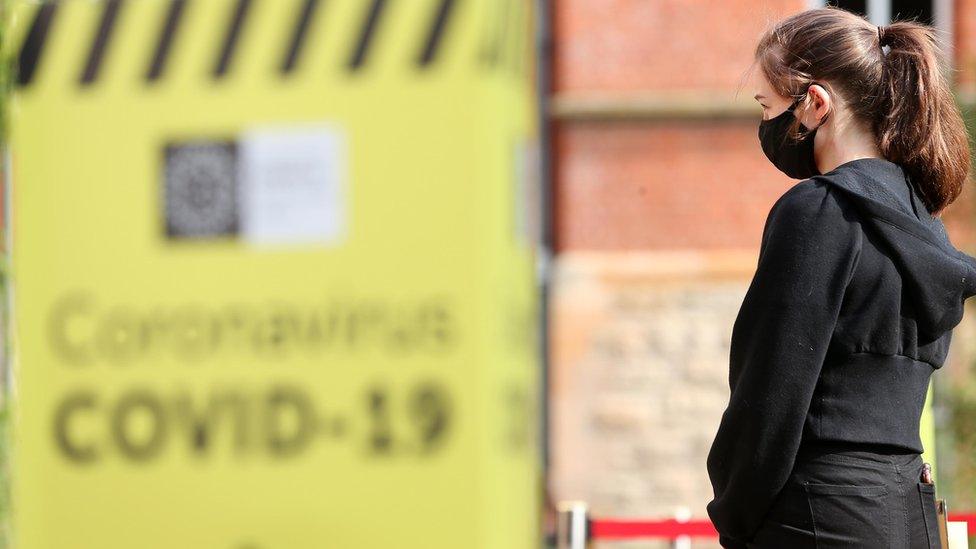
Schools have also been told by DE that vulnerable and key worker children attending school should get the same remote learning as pupils at home are provided with.
"It is expected that teaching and/or non-teaching staff will supervise and support vulnerable and key worker children in engaging with the remote learning tasks and activities provided to all pupils," DE said.
"Younger children and some children with statements of Special Educational Needs will clearly require a greater degree of support and assistance to engage meaningfully.
"In this way, the experience of vulnerable and key worker children will broadly mirror the experiences of their peers learning at home.
"Classroom assistants who provide support to children with statements should continue to support these children - directly for those who attend school and remotely where they are at home."
Related topics
- Published8 January 2021
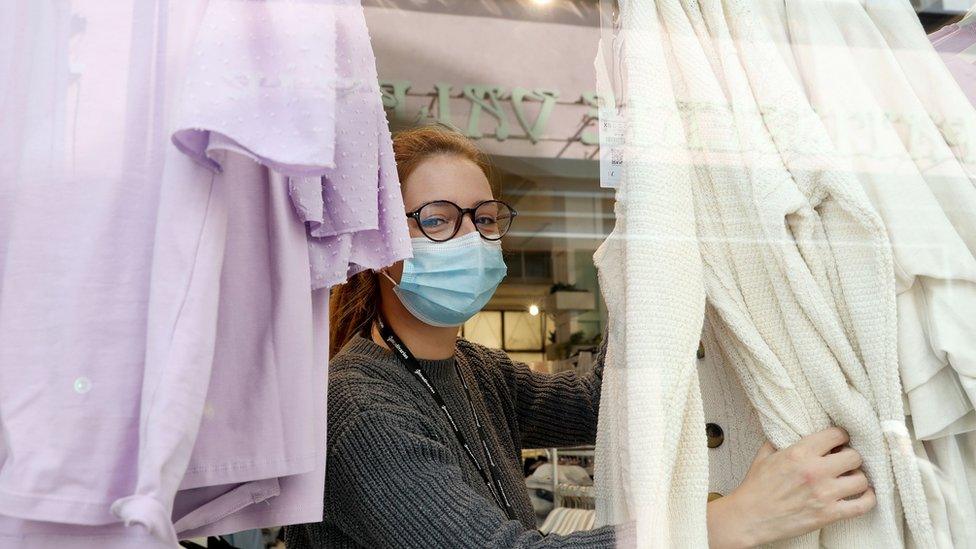
- Published8 January 2021
